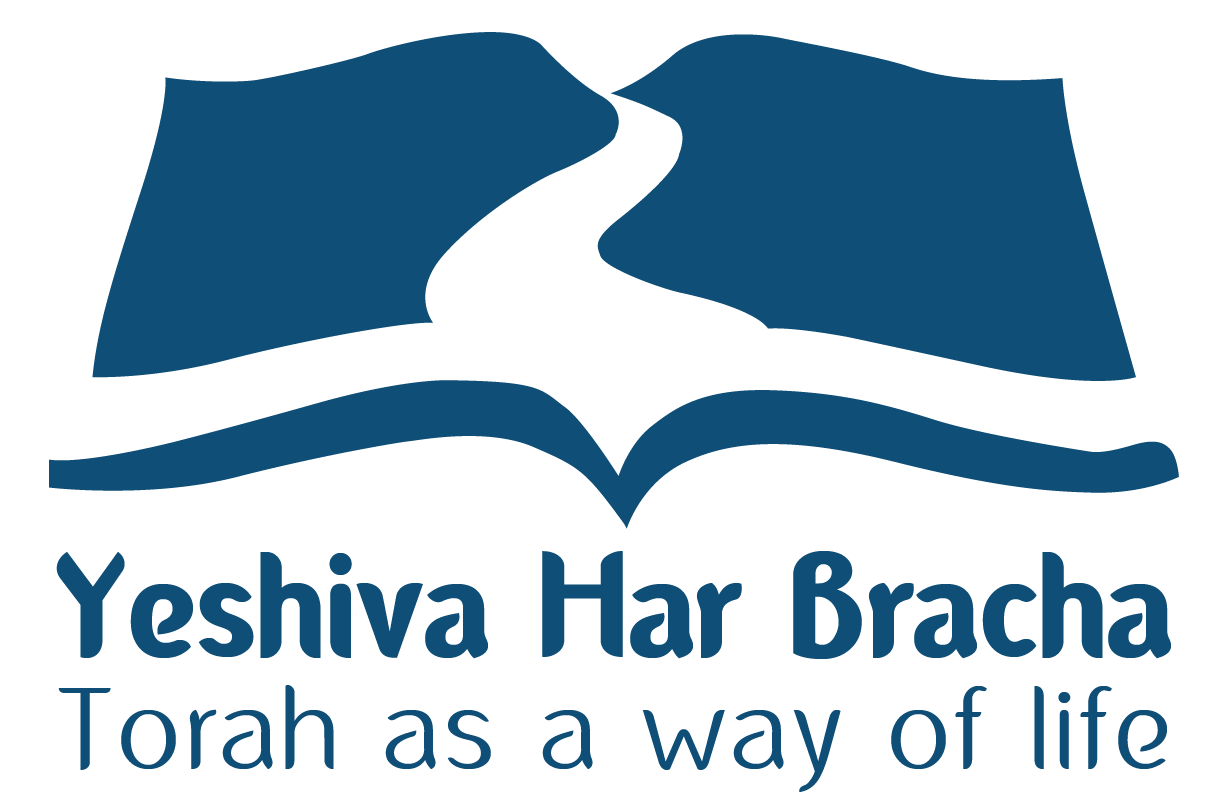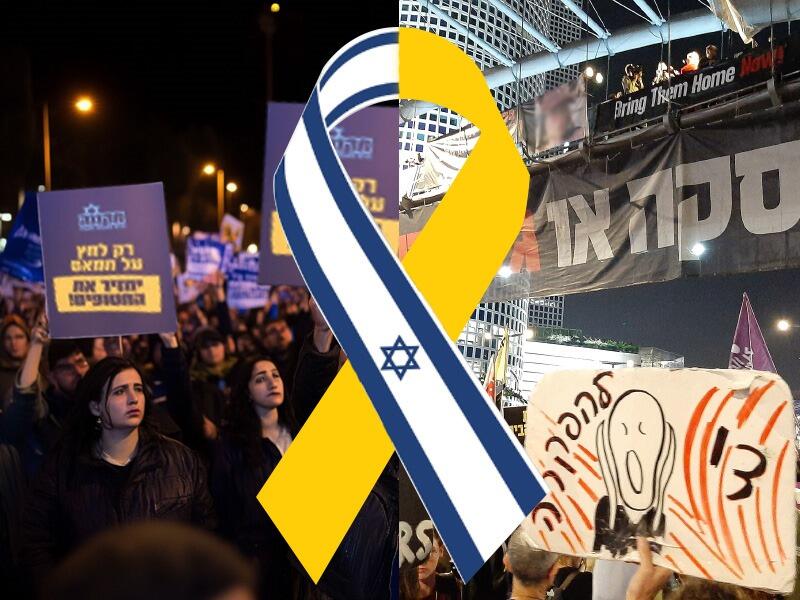Redeeming captives is a great mitzvah, and it takes precedence in importance over all other types of charity * It is forbidden to pay an exorbitant price for redeeming captives * Any excessive payment for our hostages is a surrender that endangers the lives of all Jews in a multi-systemic risk * Families of hostages should respect the larger public that is unwilling to accept surrender deals * It is worthy to commend the families of hostages who manage to rise above their terrible grief, and feel brotherhood with the bereaved families
Our Sages said that it is a great mitzvah to redeem captives, and it takes precedence in importance over all other types of charity, because the captive suffers from hunger, thirst, and lack of clothing, and in addition, his life is in danger (Bava Batra 8b). Therefore, no effort should be spared to save captives (Rambam and Shulchan Aruch Yoreh De’ah 252:1).
However, our Sages established a law that it is forbidden to pay an exorbitant price for redeeming captives, as explained in the Mishnah: “We do not redeem captives for more than their value, for the sake of tikkun olam (repairing the world)” (Gittin 45a). This is to avoid creating an incentive for robbers to capture more and more of our captives, after knowing that we are willing to pay any price for them. This is also ruled in the Shulchan Aruch (Yoreh De’ah 252:4).
Indeed, when the kidnappers threaten to kill the captive, the poskim (Jewish law decisors) are divided, and some say that since it involves a close and tangible danger to life, it is permissible, and a mitzvah, to pay any amount for him (see Pitchei Teshuvah Yoreh De’ah 252:4). Based on this, some argue that the hostages in Hamas captivity should be redeemed at any price, since they are in terrible suffering, and in close and tangible danger to life.
However, their argument is mistaken. The entire discussion is about excessive monetary payment to robbers, but if it were about demands against the entire Jewish public in that area, such as evacuating from their land, or stopping to engage in commerce and agriculture, then it is no longer a demand of robbers, but of enemies declaring war against the entire Jewish community. As our Sages instructed, if enemies came to rob even straw and hay from a border town, we risk lives to go out to war against them, because if we surrender to them in a small matter, they will continue to fight us and endanger the lives of many Jews (Eruvin 45a; Shulchan Aruch Orach Chaim 329:6).
All the more so, when it comes to an enemy whose declared goal is to destroy the State of Israel, any excessive payment for our hostages is a surrender that endangers the lives of all Jews in a multi-systemic risk: 1) Many of the released terrorists will return to murder Jews. 2) Such a deal will encourage future attempts to capture more hostages for an unbearable price. 3) The enemy will see this as a victory, and as a result, their morale will rise, and the war will be prolonged and claim many victims. 4) Following the concessions in previous deals, the enemy is no longer satisfied with the release of a high number of terrorists for each hostage, but demands political and security achievements, such as ceasefire and withdrawal. In such a situation, the risk is more severe, as any area we withdraw from will become a territory from which they will organize to murder Jews and harm the State of Israel.
The Political Left’s Position
Q: After all these justified arguments, how can one understand the position of many individuals, including policy and security experts, who support a deal at a very exorbitant price, and even that for the return of only some of the hostages?
A: These people believe that it is impossible to defeat the enemy, because it is impossible to defeat ideas, and it is also not justified to do so, because the Arabs have just national claims against the State of Israel. In their opinion, if we are willing to withdraw from Judea and Samaria and East Jerusalem, and grant national status to Arab citizens of Israel within the State of Israel, we will achieve security and peace.
For those who believe this, there is not much concession in withdrawing from strategic areas in the Gaza Strip, as well as in the mass release of terrorists, since anyway there is no possibility of defeating the enemy, and on the way to achieving peace, we will have to do this. For those who believe this, any refusal to accept Hamas’s deal is an abandonment of the hostages for false goals.
The Appropriate Policy
However, their position is not morally justified, because this land is ours, and the Arabs never had national rights in the Land of Israel. And even the generous offers that representatives of the Jewish people offered them were rejected, thus losing their national right. Also from a security perspective, it is not possible to achieve peace through withdrawal and concessions. So the moral principle, the national destiny, and reality demand that we defeat Hamas. If, God forbid, we do not succeed in this, our situation will worsen and the dangers will increase.
Fortunately, this is the position of the majority of the Jewish public. This is also what the heads of the security system have declared for months, that they will defeat the Hamas terrorists until they face only two options: to die, or to surrender. Unfortunately, despite the soldiers’ bravery, in the absence of a proper strategy, they did not succeed in their mission. They should have resigned, because one of two things: either they failed in their mission, or they lied to the public. In any case, even if they are unable to win and are unwilling to resign, at the very, least they should not propose surrender deals that will endanger the entire public.
The Dangerous Deal
Although the majority of the public is convinced that Hamas must be defeated, it is not clear that they understand that if a deal is made to release hostages at an exorbitant price, we will not win the war, and by doing so, we will endanger many more lives than we will save. This is not a hypothesis, but past experience. In a gradual process, the State of Israel surrendered and agreed to release hostages at an ever-increasing price. First was the Jibril deal in 1985, in which 1,151 terrorists were released in exchange for three IDF soldiers. These released prisoners led the first Intifada that broke out less than three years after the deal, and led to at least ten times the number of fatalities.
In 2004, a deal was signed with Hezbollah, in which Elhanan Tannenbaum and three more bodies of soldiers were released in exchange for 450 terrorists, including Sheikh Obeid and Mustafa Dirani. As a result, Hezbollah of course tried to kidnap more soldiers. Two years later they succeeded, and as a result, the Second Lebanon War broke out, in which 121 soldiers and 44 civilians were killed.
The process of deterioration continued, and reached its peak in the deal to release Gilad Shalit, in 2011. In October 2011, Gilad Shalit was released in exchange for 1,027 terrorists. Prime Minister Benjamin Netanyahu and 26 other ministers supported the deal, three opposed: Avigdor Lieberman, Moshe Ya’alon, and Uzi Landau.
These terrorists led several terror campaigns against Israel, and in the process, created a terrorist monster like no other, and led to the last war, in which more than 1,500 civilians and soldiers have been killed so far.
Can the Violent Demonstrations for the Hostages be Justified?
Q: Some argue that the families of the hostages are allowed everything, including publicly demanding to surrender to all of Hamas’s demands, and also hurling harsh words at the government and anyone who disagrees with them. Is there any truth to this claim?
A: Those who believe in the political left’s position, it is understandable that they would demand to release the hostages in exchange for many terrorists, and withdrawal from areas in the Gaza Strip. But they have no moral permission to hurl harsh words and try to embitter the lives of those who think such deals endanger human lives. All the more so when we are at war, and these words endanger human lives, as they create division, and harm the spirit of bravery of our soldiers, their families, and the general public. And no less serious, they encourage the enemy to raise the price of the hostages they are willing to release, to insist on keeping more hostages, and to initiate another war in the future.
Even the families of hostages should respect the large public that is unwilling to accept surrender deals. They can be judged favorably when they imagine what is happening to their loved ones in captivity, their minds are driven mad by torment, and out of pain, they say harsh things. But when political people and politically biased media outlets exploit their grief to hurl insults at a wide public and its representatives, a public many of whose sons risk their lives to defend the people and the land, it is already a serious sin that cannot be judged favorably. It is worthy to commend the families of hostages who manage to rise above their terrible grief and also consider the general situation and feel brotherhood with the bereaved families and with the families whose sons risk their lives for Israel on the front.
The Situation is Tragic
Our situation is tragic; the dispute between the right and the left is deep, and touches on questions of life and morality. This is accompanied by a lack of trust of most left-wing supporters, and some right-wing supporters, in the elected government, as well as a lack of trust of many right-wing supporters, and some left-wing, in the security leadership. In such a reality, we must strive as much as possible to strengthen Jewish identity and shared values, including respect, sensitivity, and understanding for political opponents.
Challah Separation that was Mistakenly Returned to the Dough
Q: We separated challah, and by mistake, someone returned it to the dough. What is the status of the dough?
A: First, it should be explained that the “challah” is intended for the Kohen (priest), so that he can eat it in purity. It is forbidden for an Israelite to eat “challah“, and it is also forbidden for an impure Kohen to eat it. Therefore, nowadays, when there is no way to purify, it is forbidden to eat challah, rather, it should be burned or wrapped, and placed respectfully in the trash.
In practice, if there was one hundred times as much in the dough against the “challah“, the “challah” is nullified, and the dough or baked goods are permitted to be eaten. And if there wasn’t one hundred times as much in the dough against the “challah“, the “challah” is not nullified, and the dough or baked goods made from it, are forbidden to be eaten.
But if they haven’t started eating from the baked goods yet, the one who separated the challah can go to a chacham (a Torah-wise person), who will sit together with two other people as a Beit Din (court), and they will annul the challah separation from its root. For the separation of challah is similar to a neder (vow), and just as a neder can be annulled, so can the separation of challah be canceled (Rema Yoreh De’ah 323:1).
The one seeking annulment should say before them that he regrets separating challah, and if he had known that it would mix with the dough, he would not have separated it. And they will say to him three times: “It is permitted for you” or “The challah is nullified”, and thus, the dough or baked goods become permitted, and he must separate challah again from them without a blessing (Peninei Halakha: Kashrut 11:13).
This article appears in the ‘Besheva’ newspaper and was translated








